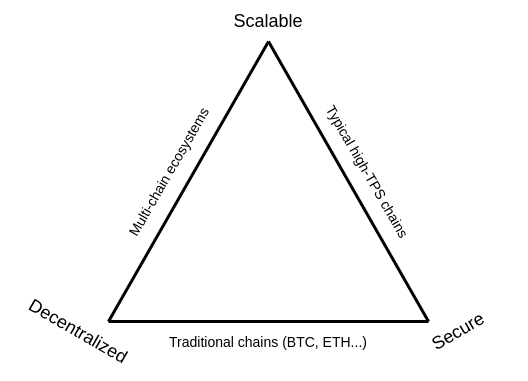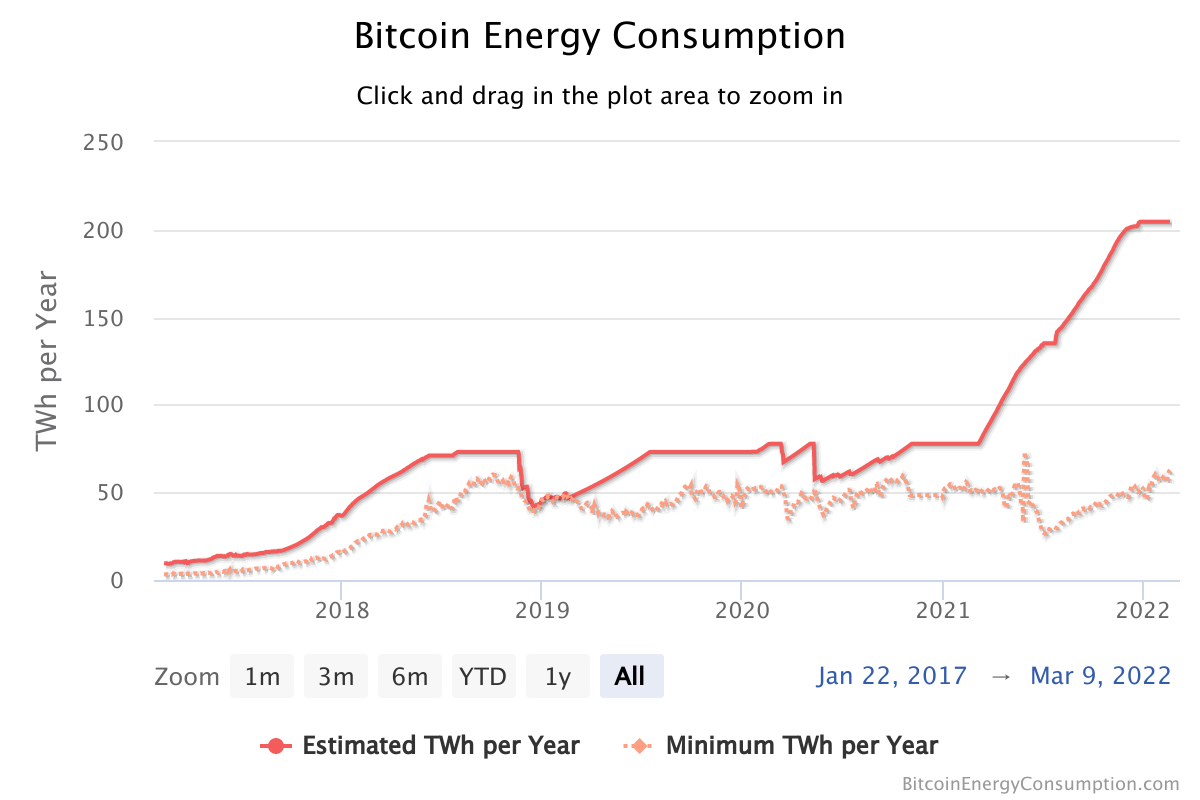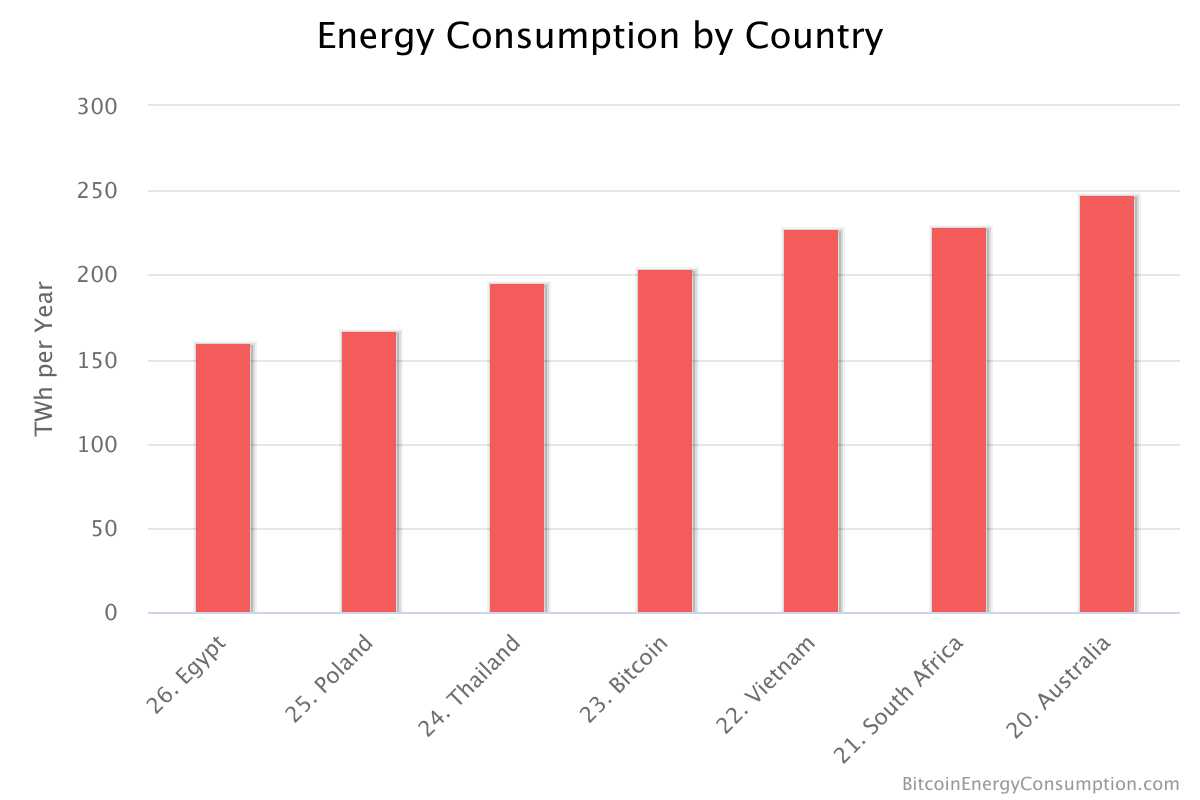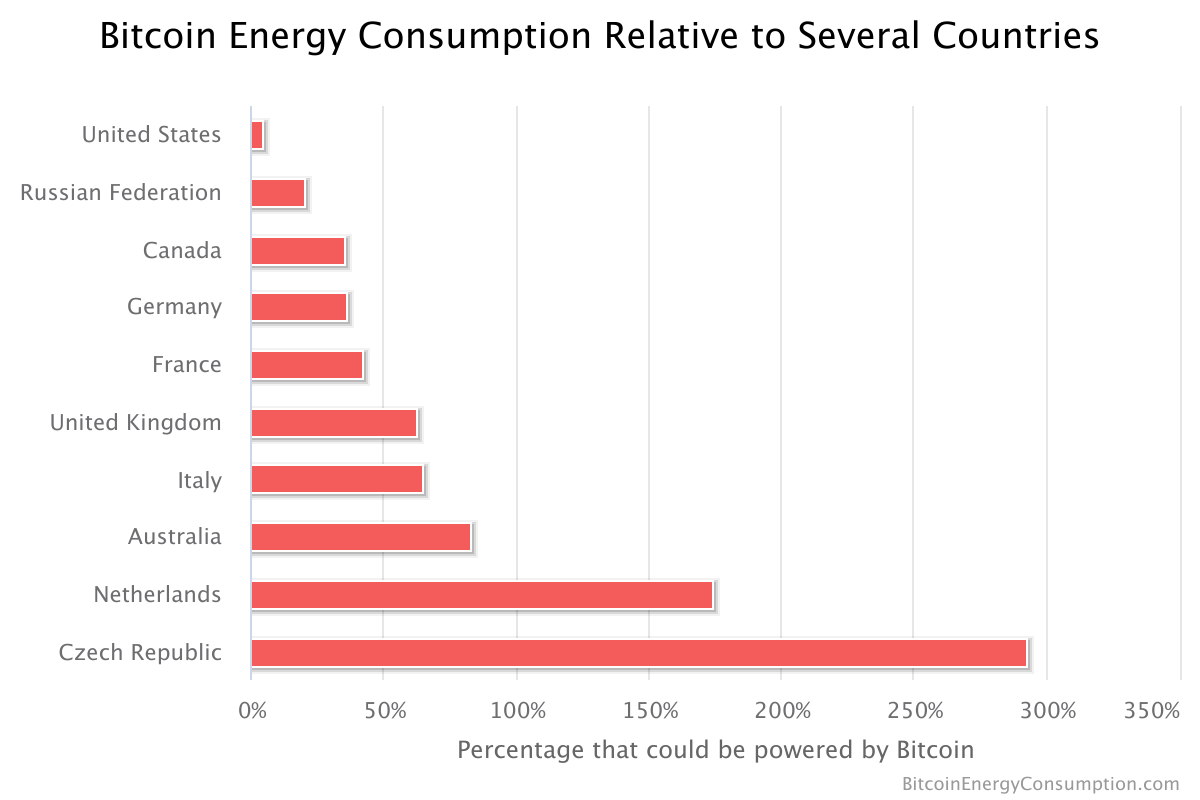Technical Challenges

Source: https://vitalik.ca/general/2021/04/07/sharding.html
Challenges with Blockchain Technology
- Performance, Scalability, & Efficiency
- Privacy & Security
- Interoperability
- Governance & Collective Action
- Commercial Use Cases
- Public Policy & Legal Frameworks
Performance, Scalability, & Efficiency
Throughput
- Bitcoin: 7 – 10 transactions / sec
- Ethereum: 20 transactions / sec
- Visa: 65,000 / sec
- DTCC (stock transaction): up to 100,000 / sec
Proof of Work Energy Consumption


 Source: https://digiconomist.net/bitcoin-energy-consumption
Source: https://digiconomist.net/bitcoin-energy-consumption
Alternatives Network Structure
- Sidechain
- Sharding
- Layer 2
- Payment Channels
- Lightning Network
Alternative Consensus Protocal
Generally Randomized or Delegated Selection of Nodes to Validate next Block. May have added mechanism to confirm Block Validators’ Work
- Proof of Stake – Stake in Native Currency
- Proof of Activity - Hybrid of POW and POS
- Proof of Burn – Validation comes with Burning of Coins
- Proof of Capacity (Storage or Space) – Based upon Hardware Space
Major Permissionless Blockchain Applications still use Proof of Work – though:
- DASH is a hybrid of POW with a tiered system of ‘Masternodes’
- NEO uses a Delegated protocol of ‘Professional Nodes’
Privacy & Security
- Law Enforcement & Regulators want more transparency
- Financial Institutions, Regulators & Some Users want less public transparency
Concerns about Privacy Coins & Mechanisms Fostering Illicit Activities
- Coins: Dash, Monero, Zcash
- Mechanisms: Mixers or Tumblers
Cybersecurity Challenges of Private Key Custody, Generation & Storage
- Significant Losses due to Hacks, Mismanagement and Thefts
Possible Solutions
- Zero Knowledge Proofs: to prove a statement is true without revealing the message of that statment
- Pedersen Commitments: cryptographic algorithms that allow a prover to commit to a certain value without revealing it or being able to change it.
Interoperability
- To view, access, and share information across different blockchains or blockchain networks
Hard Forks and Soft Forks
- A hard fork is a change to a blockchain protocol that renders older versions invalid. e.g. bitcoin cash, etherum classic
- A soft fork is a change to a blockchain protocal that is backward compatible.
Permissoned vs Permissionless
Permissioned Blockchain
- Known set of participants
- No proof-of-work or mining
- No need for a native currency
- Distributed database technology
- Favored by the financial sector
Permissionless Blockchain
- Unknown participants
- Security based on incentives
- Native currency
- Crypto-economics